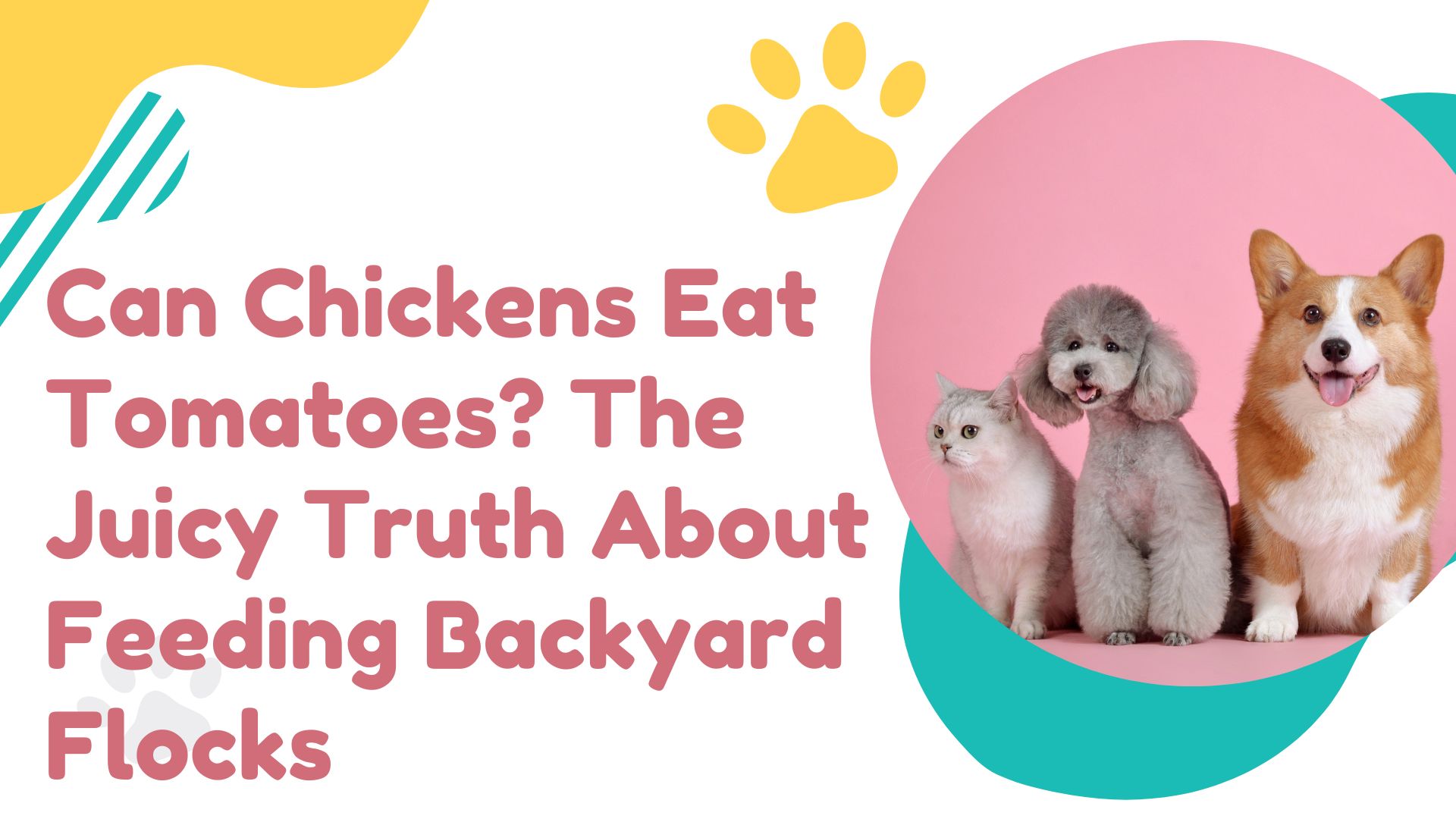Can Chickens Eat Tomatoes? The Juicy Truth About Feeding Backyard Flocks
Tomatoes on the Roost: A Clucking Verdict on Feeding Fowls the Tangy Temptations

Raising backyard chickens is becoming increasingly popular, both for fresh eggs and as pets. Chickens require a balanced diet to stay healthy.
While commercial feed makes up the bulk of their nutrition, many chicken owners like to offer treats from the garden or kitchen scraps.
Can Chickens Eat Tomatoes?

Yes, chickens can safely eat tomatoes in moderation. Tomatoes provide some beneficial vitamins and antioxidants. However, too many may upset a chicken’s digestive system.
Tomatoes contain vitamins A, and C. Vitamin A supports good vision and egg production. Vitamin C boosts chickens’ immune systems.
Tomatoes also have lycopene, an antioxidant that helps combat disease. The juice and flesh offer moisture, which chickens need daily.
However, tomatoes should be fed judiciously. Too much tomato at once may lead to loose droppings. Some chickens enjoy the taste so much that they may overindulge if given the chance.
Benefits of Feeding Tomatoes to Chickens
In moderation, tomatoes make a nutritious supplement to a chicken’s diet. The vitamins and moisture provide health advantages. Specifically, tomatoes offer chickens:
- Vitamin C for strong immune systems
- Vitamin A for healthy vision and egg laying
- Lycopene, an antioxidant to fight illness
- Hydration from the juicy flesh
- A tasty treat most chickens love
Tomatoes also count as foraging foods, which chickens naturally enjoy. Allowing chickens to forage satisfies their instincts.
Read More: Can Chickens Eat Bananas?
Potential Concerns with Feeding Tomatoes
While tomatoes offer benefits, there are some potential concerns to keep in mind:
Too many tomatoes may lead to diarrhea or upset digestion. The acidic flesh irritates chickens’ digestive tracts in large amounts. Feeding tomatoes should be limited to a few times per week.
Whole tomatoes can pose a choking hazard. Chickens gulp down food quickly. Large pieces could get stuck in their throats.
Tomatoes that have fallen on the ground can have dirt or mold. Washing or cooking them can minimize risks.
Overripe tomatoes may attract flies, rats, and other unwelcome pests. Removing peels and rotting parts helps avoid this.
Chickens enjoy pecking at tomatoes on the ground. They will toss them around to get better access to the juicy flesh. Seeing a flock enjoy these garden treats can be entertaining to watch!
How to Feed Tomatoes to Chickens
To safely feed chickens tomatoes as an occasional treat:
- Chop or mash tomatoes into bite-sized pieces to prevent choking. Whole tomatoes pose a risk of lodging in chickens’ throats.
- Limit portions to 1-2 tomato pieces per chicken, 2-3 times per week. Too many may cause diarrhea.
- Mix tomatoes with other fruits and veggies for balanced nutrition. Tomatoes should not be a daily dietary staple.
- Remove stems, leaves, and any spoiled spots. Only the fleshy pulp is safe to eat.
- Offer tomatoes as a supplemental snack, not as a full meal replacement. The commercial feed should still make up most of their diet.
- Wash any dirt off tomatoes, especially those that have fallen on the ground. Cooking tomatoes can further reduce risks.
Supervise chickens when feeding tomatoes to monitor for any signs of distress or overeating.
Other Fruits and Vegetables Chickens Can Eat
In addition to tomatoes, chickens enjoy many other garden-produce options:
- Leafy greens like lettuce, kale, spinach
- Berries such as strawberries, raspberries, blackberries
- Melons including cantaloupe, honeydew, watermelon
- Squash varieties like zucchini, pumpkin, butternut
- Root veggies like potatoes, sweet potatoes, carrots
- Fruits like apples, bananas, pineapples
These all provide chickens with hydration and nutritional variety. Most fruits and veggies are safe for chickens in moderation. Some exceptions include dried beans, avocados, and citrus.
Heirloom tomato varieties offer unique flavors and textures. Brandywine tomatoes are popular – their pink flesh and low acidity suit chickens’ digestion.
Cherokee Purples are another heirloom with low acidity. Trying different tomato types keeps chickens engaged with this healthy treat.
FAQ About Feeding Tomatoes to Chickens
Chicken owners often have these common questions about feeding tomatoes:
- Can chickens eat cherry tomatoes? Yes, but cut them in half – their small size poses a choking risk whole.
- Do chickens like tomatoes? Most chickens enjoy tomatoes as an occasional treat.
- How many tomatoes can chickens eat? No more than 1-2 pieces per chicken, 2-3 times per week.
- What parts of a tomato can chickens eat? Only the fleshy pulp – stems, leaves, and spoiled parts removed.
- Should I cook tomatoes before feeding my chickens? No need to cook, but cooking makes them softer.
Dr. Sarah McDonald, an avian veterinarian, provides insight on feeding chickens tomatoes: “Given in moderation, tomatoes can be a safe, healthy supplemental treat.
But overdoing high-acid products may irritate chickens’ sensitive digestive systems. I advise no more than a couple of tomato pieces per bird a few times a week.” Consulting an expert adds credibility.
Final Words
Tomatoes can be a nutritious, low-calorie treat for backyard chickens. The vitamins, antioxidants, and moisture benefit chickens fed in moderation.
Be sure to remove stems and leaves, wash dirt off fallen tomatoes, and chop them into bite-sized pieces before feeding.
Along with other fruits and veggies, the occasional tomato gives chickens variety and enriches their diet. Following proper precautions allows chickens to enjoy this garden snack safely.
Incorporating produce like tomatoes satisfies chickens’ natural foraging instincts. Tomato-loving breeds like Plymouth Rocks, Rhode Island Reds, and Wyandottes especially appreciate the flavor.



